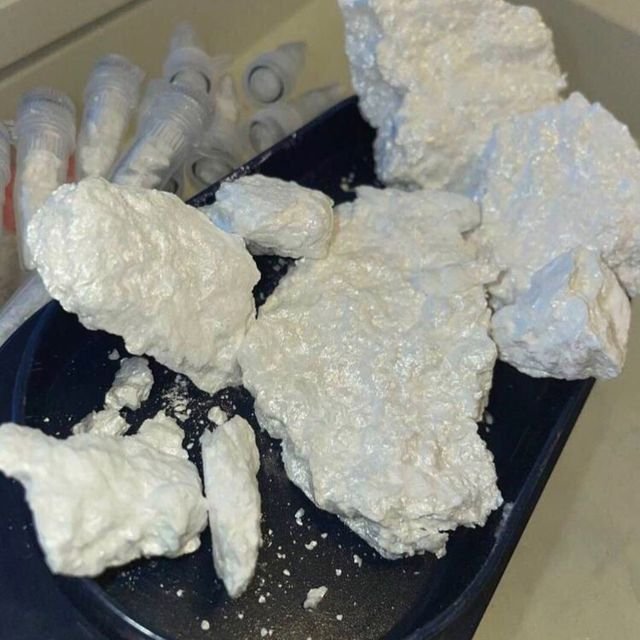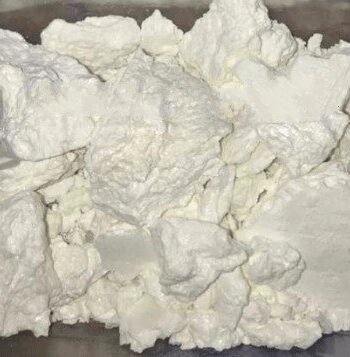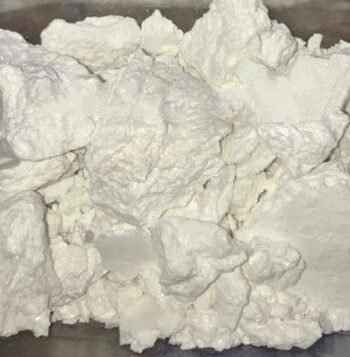Description
COCAINE ADDICTION :
Now, cocaine addiction is a huge problem around the world.
Discovering premium cocaine online is now easier than ever with our service.
We offer a secure, discreet, and effective way to access the products you need.
By partnering with trusted suppliers, we ensure that only high-quality, lab-tested cocaine reaches our customers for therapeutic, research, and wellness purposes.
Every order is meticulously processed, discreetly packaged, and delivered promptly, prioritizing your safety and privacy.
We are committed to maintaining the highest standards of purity and consistency in all our products.
Our dedicated customer service team is ready to guide you every step of the way, from placing your order to tracking your delivery.
Whether you’re making a new purchase or this is your first time, we strive to provide exceptional attention to detail, confidentiality, and satisfaction.
Join the growing community that relies on us for fast and secure access to cocaine online.
We are committed to providing a safe, private, and professional experience.
This is the new, modern approach to purchasing cocaine.

WHAT ARE THE SIGNS OF COCAINE ADDICTION?
Cocaine addiction presents a variety of physical and behavioral symptoms that become more evident over time.
Physically, users often exhibit signs such as dilated pupils, a result of the drug’s stimulant effects.
They also experience frequent nasal problems, such as a runny nose or nosebleeds, especially if they inhale the substance.
Users often inhale repeatedly to relieve nasal irritation.
Additionally, heart rate and blood pressure increase, as cocaine stimulates the cardiovascular system.
Sleep disturbances are common, with periods of intense energy followed by profound fatigue.
Unexplained weight loss is also observed, as cocaine reduces appetite.
Behaviorally, cocaine addicts experience frequent mood swings, oscillating between feelings of euphoria and irritability.
They may experience intense paranoia or even hallucinations with prolonged use.
Risky behaviors become a concern, such as engaging in dangerous activities like driving under the influence of alcohol or having unprotected sex.
Their daily responsibilities, such as work or family obligations, are neglected as the addiction becomes more widespread.
Financial hardship mounts as users spend excessive amounts to maintain their addiction.
To this day, cocaine addiction remains the biggest addiction problem in the world.
On the other hand, substance abuse will usually improve a person’s heart rate more than either substance alone.
IS COCAINE ADDICTIVE?
Cocaine can be addictive, but it doesn’t usually become addictive after a single use.
However, even a single dose often triggers a strong urge to use it again.
This craving is a common reaction because the drug stimulates the brain’s reward system, flooding it with dopamine.
The euphoria reinforces the desire to repeat the experience.
As use continues, the body develops a tolerance, meaning larger amounts are needed to feel the same effects.
Over time, this cycle increases the likelihood of addiction.
For some people, addiction begins with the first use, especially if they have a predisposition to substance abuse.
While it isn’t addictive for everyone, the danger increases with each additional use.
If you’re concerned about addiction, it’s essential to seek professional help.
The analysis also shows an increase in violent thoughts.
Cocaine addiction and actions when cocaine and alcohol are consumed at the same time.
Yet billions of pounds of profit can be made from trading cocaine.
Second, they have not recently coveted the global strengthening of the Mexican cartels, but have also funded it.
In addition, the benefits of cocaine allow Mexican cartels to buy boats and planes.
Then win, hire professional runners and assassins, and pay government officials.
Usually, cocaine can also limit your ability to drive after naps and meals.
However, many people report that cocaine helps them think much more directly and take responsibility.
HOW DOES COCAINE AFFECT THE HEART?
Cocaine has several harmful effects on the heart that become more evident with its use.
It stimulates the release of chemicals such as dopamine and norepinephrine, which increase heart rate and blood pressure.
This increase puts considerable strain on the heart. Additionally, cocaine narrows blood vessels, reducing blood flow to the heart.
Again, this can cause chest pain and an increased risk of heart attack, especially in people with pre-existing heart disease.
At the same time, cocaine disrupts the heart’s electrical system, causing irregular heartbeats that can be life-threatening.
It also reduces oxygen delivery to the heart, further increasing the risk of a heart attack, even in people with no prior heart problems.
Over time, prolonged cocaine use contributes to serious long-term damage, such as weakening of the heart muscle.
This can ultimately lead to heart failure, which puts enormous strain on the cardiovascular system.
As a result, many users begin to crave the emotions triggered by cocaine.
Truly, it destroys occupations, leads to brutality, and accelerates deforestation.
However, little is being done to increase the cost of illicit drugs on American roads.
For any individual, the exact benefits of cocaine addiction will depend on the level of drug use before getting used to it.
In addition, the severity of the addiction, your need to be sober, and several other variables.
Some of the great benefits of enabling cocaine addiction are things like.
CAN COCAINE CAUSE MENTAL ISSUES?
Cocaine currently contributes to various mental health problems.
Many users experience increased levels of anxiety, paranoia, and frequent panic attacks.
These effects often persist long after the drug is eliminated.
Furthermore, regular use causes persistent depression, as the drug alters the brain’s natural chemical balance.
Some people even develop psychosis, characterized by hallucinations and delusional thinking, especially those with pre-existing mental health conditions.
The risk of suicidal tendencies also increases due to the drug’s impact on emotional stability.
Chronic users also suffer from cognitive difficulties, such as memory and concentration problems.
These cognitive problems prevent them from thinking clearly or making informed decisions.
HOW IS COCAINE DETECTED IN A DRUG TEST?
Cocaine is identified in drug tests by detecting its main metabolite, benzoylecgonine.
When the body breaks down cocaine, benzoylecgonine remains in the urine and blood.
Urine tests reveal cocaine use for up to 2 to 4 days after ingestion, although chronic users can test positive for longer, sometimes up to a week.
Blood tests, on the other hand, show the presence of cocaine for a much shorter period, usually 12 to 48 hours.
These tests are commonly used in emergencies or forensic investigations.
Saliva tests identify traces of cocaine for approximately 1 to 2 days after use and are often used for rapid testing.
Hair follicle tests can detect cocaine use for up to 90 days because traces of the drug remain trapped in the hair.
The length of time cocaine remains detectable depends on factors such as frequency of use and the person’s metabolism.
COCAINE BRICK-COCAINE ADDICTION USA:
Now the Colombian government claims that the mass destruction by force should help destroy the groups of remaining furniture groups at the site.
For the most part, who profits from the cocaine trade? cocaine addiction
Contact a healthcare professional if you or your loved one is addicted to cocaine.
Or someone you trust who can provide the opportunity to help you research and find healing options.
other resources to help you. cocaine addiction
In addition, in everyday life, the person may experience critical anxiety without proper justification.
First, they can have a strong craving for drugs.
In addition, tolerance to the drug increases with prolonged use.
And it takes more of the drug to generate a result similar to the previous use. cocaine addiction
Therefore, the Colombians accepted the lion’s offer to add products marketed on cocaine.
Because of Mexico, just like Mexicans, they give a spending allowance for every pound they move.
And yet, a bodily tolerance to the effects of cocaine can develop shortly after a few uses.
After all, the result is that more and more drugs are needed to find the same effect. cocaine addiction
Finally, for people in therapy, it is necessary to use compounds to obtain solutions that meet all of their healing needs. cocaine addiction
WHAT IS COCAINE ADDICTION?
Any use of cocaine is, first and foremost, considered abuse because it is an illegal compound.
Cocaine is indeed a central stimulant in the anxiety program, which affects the brain by stimulating high levels of dopamine.
Overall, a brain chemical is associated with satisfaction and reward. cocaine addiction
To conclude, irritability, anxiety, and paranoia are common indicators of cocaine.
Certainly, cocaine users will usually go from euphoric behavior to irritable and anxious behavior within a short period. cocaine addiction
Nevertheless, cocaine is a white powdery substance that reacts with the technique of the central nervous system of the human body.
On the other hand, it provides energy and euphoria.
That is, it is more frequent inhalation, but it can also be smoke or dissolving in water and injecting.
For the most part, cocaine is also called cola, puff, or powder. cocaine addiction
In summary, with only 30 times in a rehabilitation center, you will be clean and sober, start therapy, and be part of a support group.
Most importantly, you understand the methods to control your cravings. cocaine addiction
COCAINE AND ALCOHOL:
Nonetheless, the remedies are sometimes used in conjunction with behavior therapy.
In addition, disulfiram (a drug used to treat alcohol abuse), as well as a behavioral remedy, has helped reduce cocaine use. coca addiction
[sc_fs_multi_faq headline-0=”h2″ question-0=”What Is Cocaine?” answer-0=”Cocaine is a substance that originates from leaves of the coca plant, which is native to South America. It was first introduced to the United States in the early 20th century as a local anesthetic for surgical use. In recent decades, it has become notorious for its harmful properties as a powerful and highly-addictive substance.” image-0=”” headline-1=”h2″ question-1=”What Are The Common Names For Cocaine?” answer-1=”coke crack blow charlie speedball snow dust powder” image-1=”” headline-2=”h2″ question-2=”How Do People Use Cocaine?” answer-2=”Cocaine has been used within some medical settings as a local anesthetic, but may also be abused recreationally as a street drug. There are a few different methods in which a person can use cocaine.” image-2=”” count=”3″ html=”true” css_class=””]





